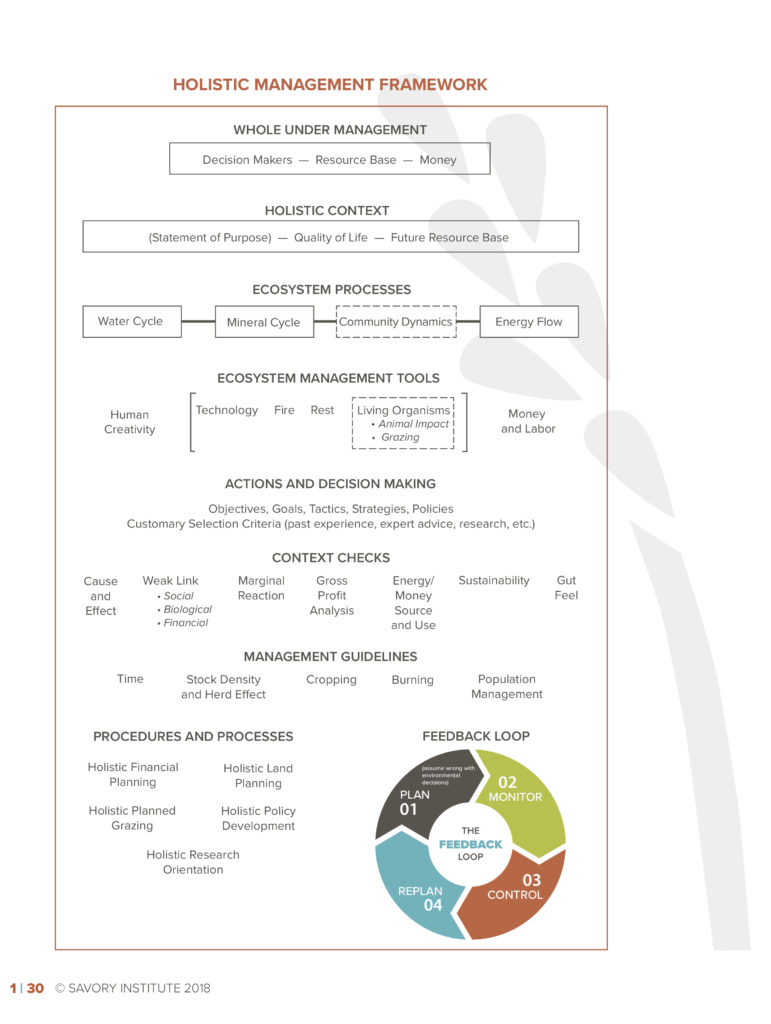Monday 6th January 2020,
Darren J. Doherty, CPAg (AIA),
Castlemaine, Victoria, Australia
The fire season here in SE Australia has some months to run and has so far proved to be unprecedented on a number of levels. Will the enormity of this latest conflagration actually result in large scale landscape management practice change or is this in fact a sign of this continent’s rejection of its European cultural management?
A quick application of the Savory Institute‘s Holistic Management Framework’s ‘Context Checks’ (see attached diagram from the Savory Institute) shows that these mega fires and the response to their control is a management failure on a whole number of levels – social, biological and financial.

When it comes to management the responsibility lays with the individual land manager/owner to start with.
People have fundamental array of management decisions to make which are often not taken in reference to the place they may live — largely out of a profound lack of ecoliteracy.
It also is with various crown authorities and departments, both federal and state when it comes to their lands and their laws and to the smallest extent, local government and their lands and laws.
I’m guessing that out of all of this there will be a series of state and federal inquiries, maybe even a federal royal commission and that if it is the latter its terms of reference will not include climate change factors as this federal government/parliament is too polarised on that issue to have the maturity to include it. Or if climate change is included then it the TOR will be limited to not give the opportunity for the scientific community to influence findings and policy recommendations that might be incongruous to some members of the Minerals Council of Australia, but not the Insurance Council of Australia whose members know that this is not God who is the cause here — it is the free will provided.
In a recent tour of some of the areas most deeply effected by the Black Saturday fires in 2009 which killed so many people, flora and fauna it was clear that management practices in those areas has largely gone back to how it was before such a catastrophic event.
This tour, as with many others I have done post fire, flood and drought, added to the succession of pauses that I have felt — moments when I’ve wondered what it actually takes for people to really engage in whole practice change.
As a holistic land management planner with considerable interdisciplinary experience built on a local and global perspective I submit the following policy discussion points:
1. That all government and volunteer departments, authorities & agencies agree that management should be holistic and explain to the public what that actually means when they do themselves.
2. That volunteer firefighters are appropriately tooled and compensated for what is way beyond the typical risk and scope of volunteer work.
3. That there be incentive for the development of a highly value-added timber industry along the Great Dividing Range. This would ideally be state-owned or in public/private partnerships ideally using Australian Radial Timber technology — however the problem is that both state and corporate forestry in this country typically disintegrates management and product outcomes to large-scale clear-felling and wood chipping not export quality construction and furniture timber.
If it has to be subsidised then so be it as the opportunity cost of avoiding/reducing the intensity of the next conflagration (which will be more intense) would likely be worth it.
4. In crown-owned landscapes with lower biodiversity value, support forestry thinning and the aforementioned value-adding practices followed with planned grazing of livestock to increase landscape function and reduce fire risk.
5. In higher biodiversity value landscapes engage indigenous fire managers to appropriate their wisdom and practice. These managers (such as as Rodney Mason in the SE and Victor Steffensen in the north) should be leading trainings with all manner of folks. I would consider even that volunteer fire brigades could be involved in this kind of work for the primary reason that their resources and time be put into prevention and not just in response.
6. Require rural land managers to undertake holistic land management trainings and support through legislation/de-regulation the practices of Holistic Management, Natural Sequence Farming and the Australian Keyline Plan.
Over the last 70 years sufficient evidence has been built around these three holistic practices (NSF and Keyline both being Australian concepts) provide the management and integrated infrastructure to increase the hydration, natural fertility and function of landscapes, reducing fire risk and intensity, whilst providing the fundamental technology for land managers to more safely and reliably fight fires.
Having a properly funded carbon farming program would enable land managers to invest in the development of natural and built infrastructure along with on-going management of the ecosystem processes they are in control of.
Commodity-based agricultural production supply chains in large part do not support terms of trade conditions which allow individual land managers to otherwise invest as they might and so as a result low standard land management outcomes prevail.
7. Resurrect the Bushfire CRC (‘concluded’ in 2014) as the breadth of knowledge on how to contend with the ongoing threat that fire is by no means settled. Many of the measures suggested above could have trials which are integrated in with other CRC’s and agencies such that principle of best practice are further developed.
8. Place a price on Carbon such that there is a funding vehicle for these management practices. If individuals, companies and corporates are going to use clever accounting to avoid paying their fair share of royalties and/or taxes then apply the monetisation of the physics of the carbon cycle to remove that possibility.
Otherwise I am actually in agreement with Jeremy Clarkson in that what I’ll call the ‘Australian European Management Experiment‘ (1770~present) will likely be terminal as the enormous peculiarities of this continent will not respond well to its continued lack of holistic management.
PS. In November of 2019 I published an article titled, “#BeforeTheFire Resources”. If you are interested in fire prevention and protection then please consider watching, reading and following through with the resources suggested.

